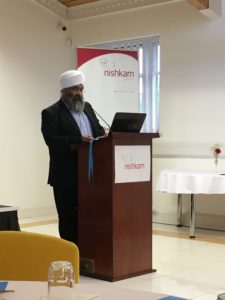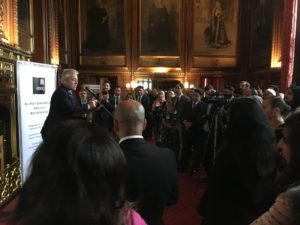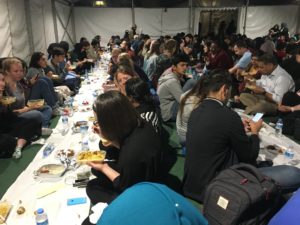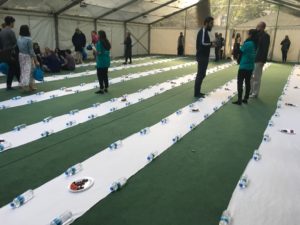HOPE not hate uses cookies to collect information and give you a more personalised experience on our site. You can find more information in our privacy policy. To agree to this, please click accept.
It is a Sunday morning – 2:25 am to be precise – and I am making my way towards an unfamiliar kitchen. Working in Birmingham through the weekend, I was invited to stay over at a Muslim colleague’s house.
The scene in the kitchen is even more unfamiliar. There is a full breakfast spread on the kitchen table, her three teenage children chatting and joking while my colleague looks like it’s closer to midday than midnight.
Coming from a household where the pre-dawn meal is scarfing down a few dates in zombie-mode, it hits me again just how varied Ramadan is; across the world but also for Muslims brought up in the same place– culture, traditions, religious practices all creating different patterns.
Muslims often repeat how they are not a monolithic mass – but sometimes we forget ourselves. Especially if we often attend Iftars with the usual suspects of faith and interfaith leaders.

The night before my 2:25 am wake up, I attended an iftar hosted by the Sikh community of Birmingham – the first one they had ever held – where an Imam, a Granthi and a Vicar spoke about the importance of charity. Three days later I found myself at an iftar hosted by John Bercow, Speaker of the House of Commons, in Westminster– also a historic first. The gilded rooms were peppered with the elite, from big interfaith names, heads of Islamic institutions and MPs.
Both these Iftars were important steps on the path to celebrating difference rather than merely tolerating it. But they remained very insular, with a very specific type of Muslim or non-Muslim attending.

A more promising initiative I discovered this month was the Ramadan Tent Project. A literal tent erected outside SOAS University, it has grown exponentially since it began as a student-led initiative offering a free warm meal. The iftars organised every night of Ramadan brings together a swathe of the British public made up of different ages, origins and professions.
Before the breaking of the fast a few speakers discussed community issues with the people present. I heard about food kitchens popping up across London and what kind of sustainable technology one should buy. The Ramadan Tent Project has succeeded where many other social interfaith initiatives have failed: bringing normal people, rather than activists, together.

I spoke to a range of people – of different or no faith – while breaking my fast. Two of them told me they were fasting that day despite not being Muslim.
I am always curious about people who fast without a faith element to it. The reason I fast is so linked to spirituality I sometimes wonder what they gain from it.
One said they were doing it as a challenge to themselves while the other said there was a period of her life where she didn’t eat very much and she was fasting to remind herself of it.
There is no denying that fasting in solidarity aids the ‘Muslims are just like us’ efforts in a time where Muslims desperately need to be humanised so as to counter the waves of hate and othering. But there is a possibility that solidarity fasting turns into a gimmick, with the original intentions behind the act blurred by the fad.
In an ideal world, this would be annoying, but in the current climate, I can appreciate the positive impact it can have.
